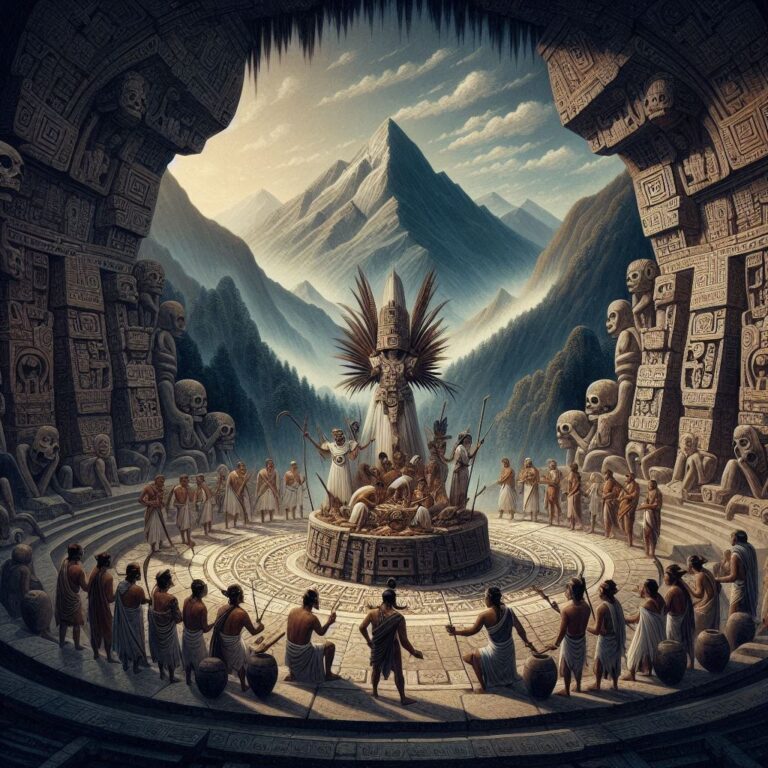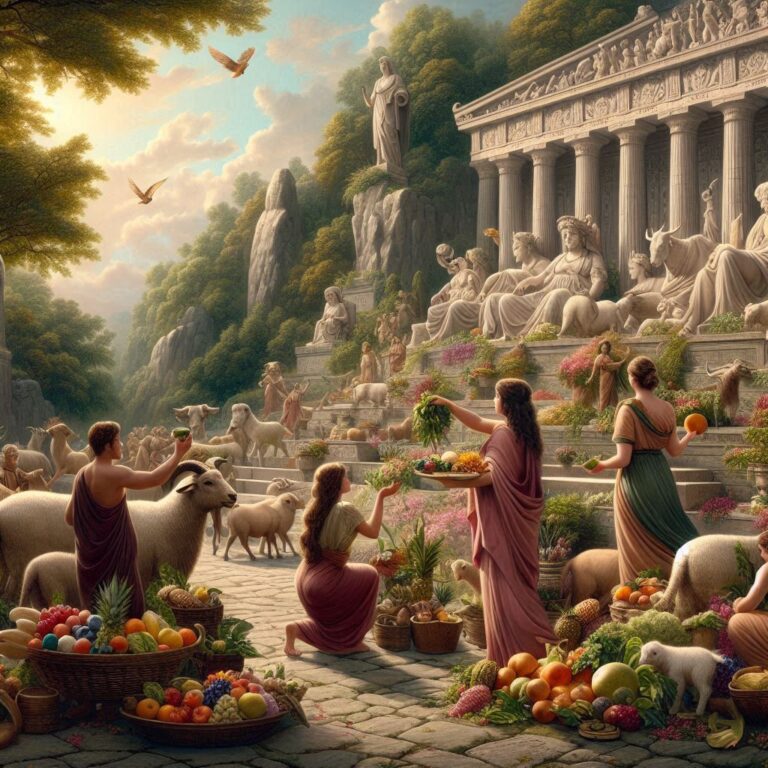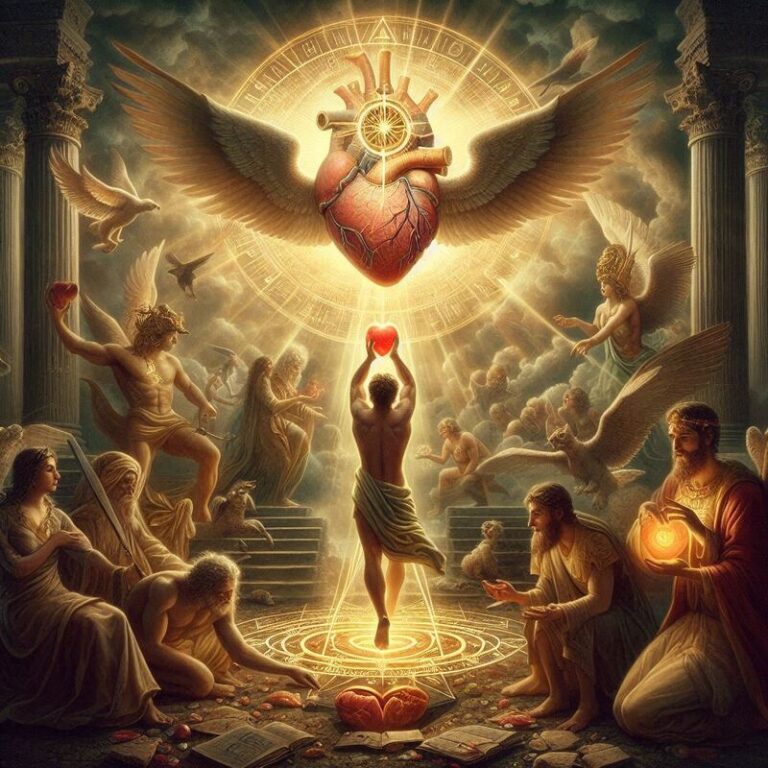Honoring the Gods
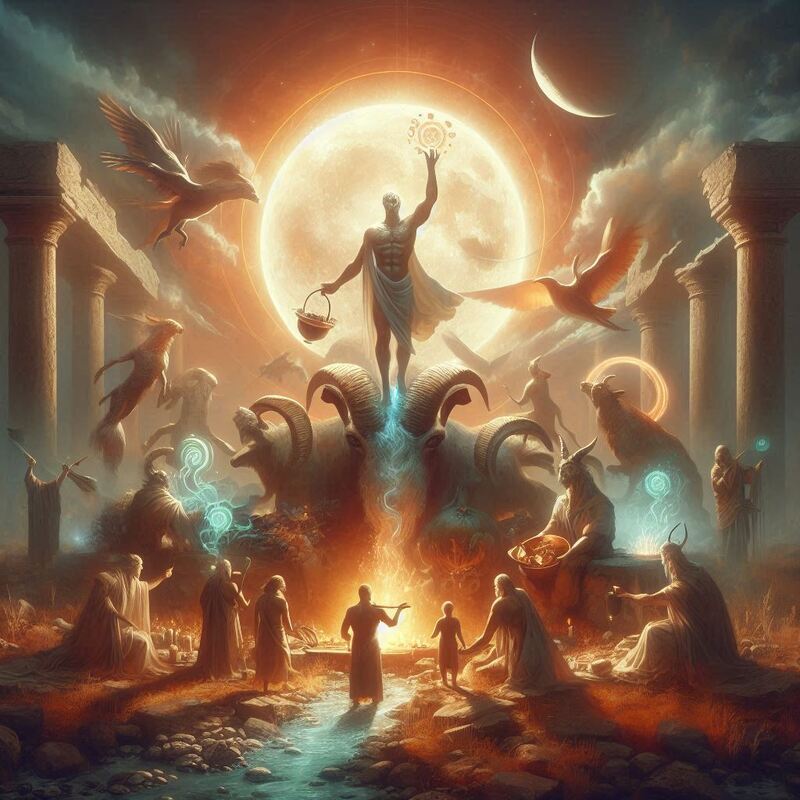
Honoring the Gods
Honoring the Gods: Positive Perspectives on Sacrifices in Ancient Rituals
Sacrifices have been a fundamental aspect of religious and cultural practices throughout history, spanning diverse civilizations and mythologies. While modern perspectives may sometimes view these practices through a critical or negative lens, it is essential to understand the positive roles and profound significance that sacrifices held in ancient rituals. These acts of offering were not merely about appeasing deities but were deeply intertwined with expressions of devotion, gratitude, and the maintenance of cosmic harmony. This article explores the positive perspectives on sacrifices in ancient rituals, examining how they honored the gods and reinforced communal values.
The Role of Sacrifices in Ancient Societies
Honoring the Gods
In ancient societies, sacrifices were seen as a vital link between the human and divine realms. They were believed to establish and maintain a reciprocal relationship with the gods, ensuring their favor and the continued prosperity of the community. These offerings could take various forms, including food, animals, and, in some cases, humans, each carrying specific symbolic meanings and intentions.
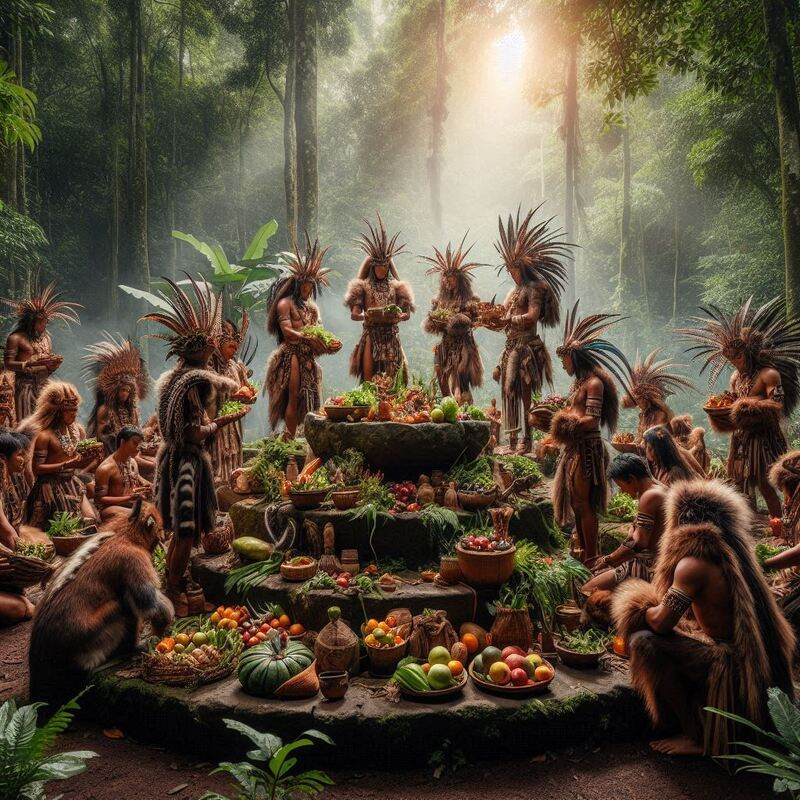
Sacrifices were often performed during significant religious festivals, agricultural cycles, and critical moments in individual lives, such as births, marriages, and deaths. They were integral to the rhythm of life, providing a structured means for people to express their reverence and dependence on the divine.
Greek Mythology: Animal Sacrifices as Acts of Devotion
Honoring the Gods
In Greek mythology, animal sacrifices were a central component of worship and ritual. These ceremonies were performed to honor the pantheon of gods and goddesses, seeking their blessings for various aspects of life, such as fertility, victory in battle, and protection from natural disasters. The rituals were elaborate, often involving processions, prayers, and the burning of the animal’s flesh on altars, with the smoke believed to carry the offerings to the gods.
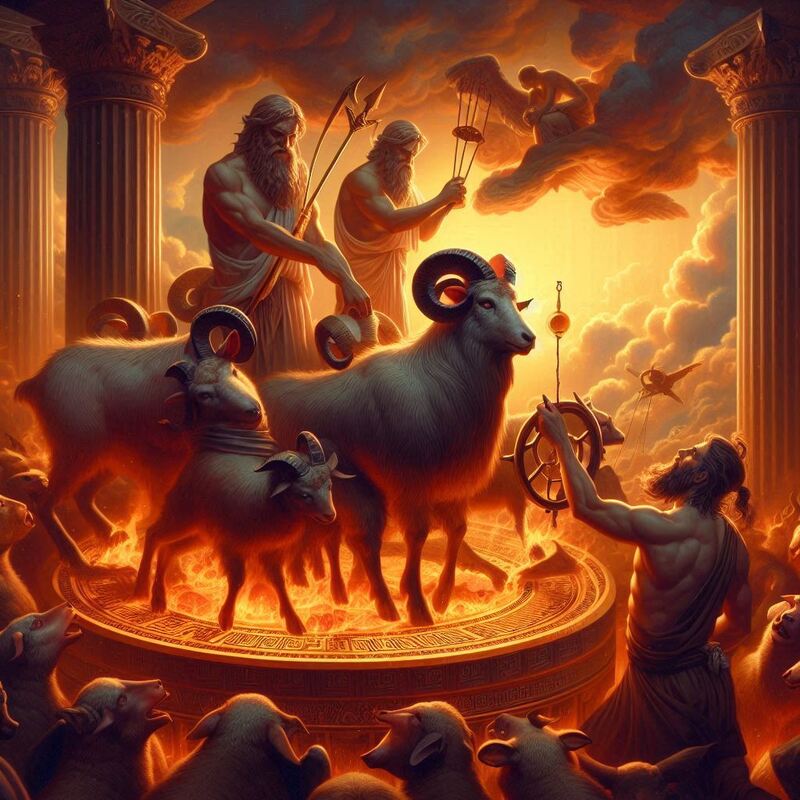
One notable example is the hecatomb, a grand sacrificial ceremony involving the slaughter of one hundred cattle. This ritual was reserved for significant events and festivals, such as the Olympic Games and major religious celebrations. The hecatomb symbolized communal participation and collective devotion, reinforcing social cohesion and shared values.
Through these sacrifices, the Greeks expressed their gratitude and loyalty to the gods, recognizing the divine influence in their lives. The rituals served as reminders of human limitations and the need for divine guidance and support.
Hinduism: The Spiritual Significance of Yajna
Honoring the Gods
In Hinduism, the concept of yajna (sacrifice) holds profound spiritual significance. Yajna involves offering ghee, grains, and other substances into a sacred fire while chanting Vedic hymns. This practice is believed to sustain the cosmic order (rita) and facilitate the flow of positive energy between the material and spiritual worlds.
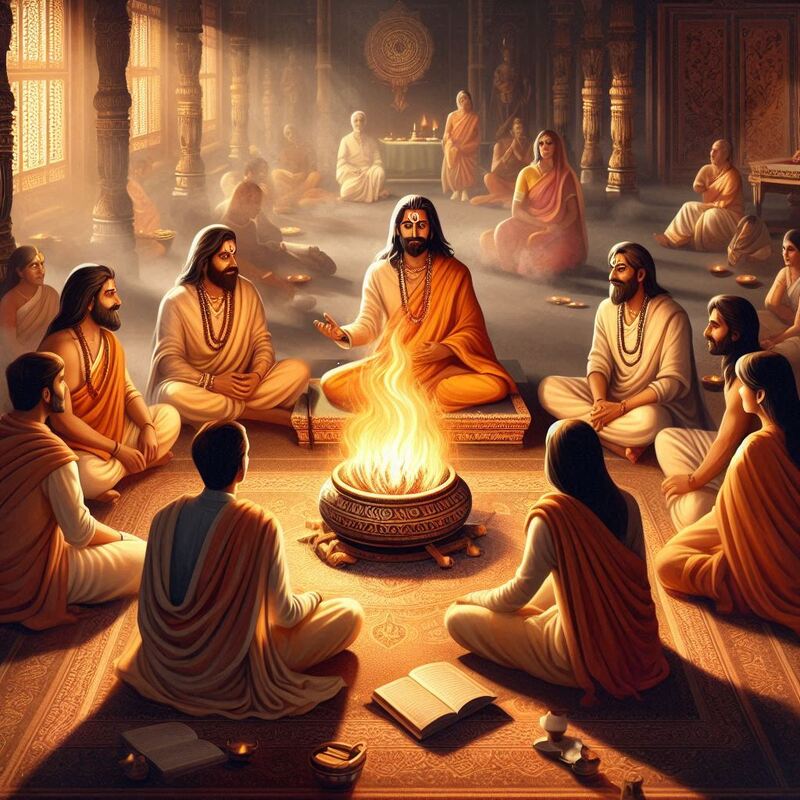
The Rigveda, one of Hinduism’s oldest texts, extols the virtues of yajna, describing it as a means to nourish the gods, ensure the prosperity of the community, and attain spiritual enlightenment. The ritual of agnihotra, a daily yajna performed at sunrise and sunset, exemplifies the ongoing commitment to maintaining harmony with the cosmos.
In Hindu philosophy, sacrifices are seen as selfless acts of devotion (bhakti) and duty (dharma). They are not merely transactional but are considered offerings of one’s best to the divine, fostering humility, gratitude, and a sense of interconnectedness with all life.
Norse Mythology: Sacrifices as Acts of Honor and Valor
Honoring the Gods
In Norse mythology, sacrifices were integral to the worship of gods such as Odin, Thor, and Freyja. These offerings, which included animals, weapons, and even humans in certain contexts, were performed to gain the favor of the gods, secure victory in battle, and ensure bountiful harvests.
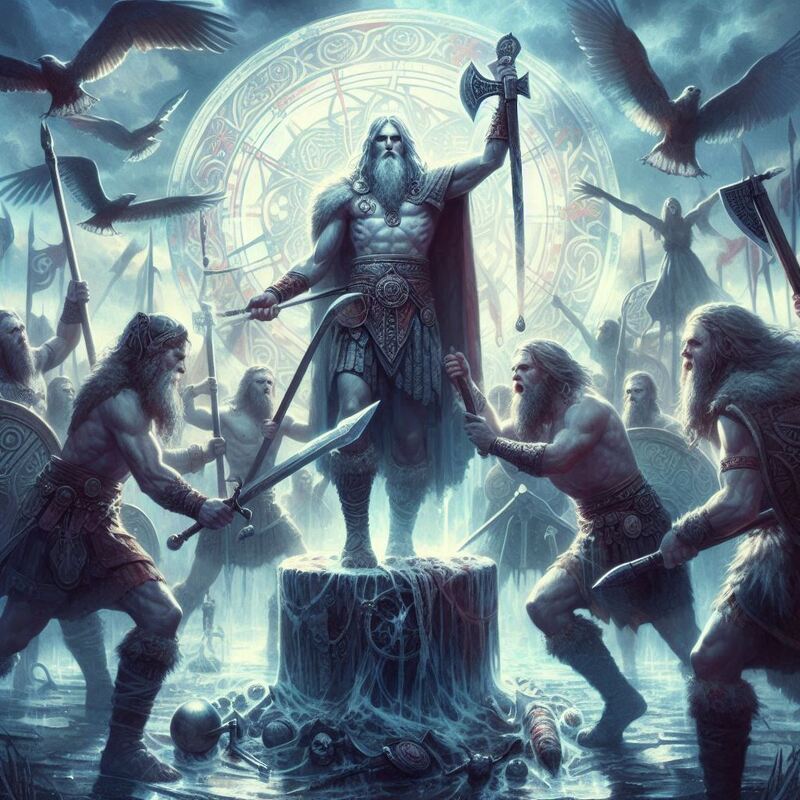
The Blót, a Norse sacrificial ceremony, involved feasting, toasting, and the offering of animals to the gods. These rituals were communal events, reinforcing social bonds and shared beliefs. The act of sacrifice was seen as a demonstration of honor, valor, and loyalty to the gods, who were believed to actively participate in the lives of the Norse people. Honoring the Gods
For the Norse, sacrifices were expressions of respect and admiration for the gods’ strength and wisdom. They symbolized the warriors’ readiness to give their lives in service of their deities and their communities, reflecting a culture that prized courage and sacrifice.
Aztec Mythology: Human Sacrifice and Cosmic Balance
Honoring the Gods
The Aztec civilization is often remembered for its practice of human sacrifice, a ritual deeply embedded in their cosmology and religious beliefs. The Aztecs believed that the gods had sacrificed themselves to create the world and sustain the sun, and thus, human sacrifice was seen as a necessary reciprocal act to ensure the continuation of life and cosmic balance.
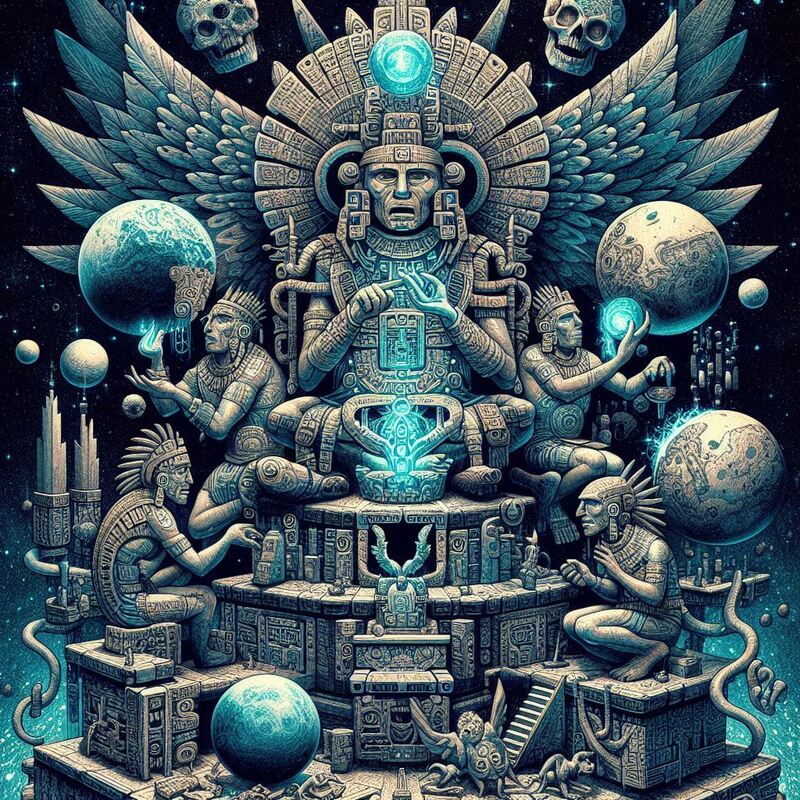
These sacrifices were conducted during significant religious festivals, such as the Feast of Toxcatl, dedicated to the god Tezcatlipoca, and the New Fire Ceremony, held every 52 years to renew the sun. The victims, often prisoners of war, were treated with great reverence, viewed as messengers to the gods who played a crucial role in sustaining the universe.
While modern perspectives might view these practices with horror, it is essential to understand that for the Aztecs, human sacrifice was a profound expression of gratitude and devotion. It underscored the belief in the interconnectedness of life and the responsibility of humans to maintain the balance and favor of the gods.
Egyptian Mythology: Offerings to the Gods and Pharaohs
Honoring the Gods
In ancient Egyptian religion, sacrifices were a key aspect of rituals performed to honor the gods and the divine pharaohs. Offerings included food, beverages, incense, and animals, presented at temples and shrines to ensure the gods’ continued favor and the well-being of the land.
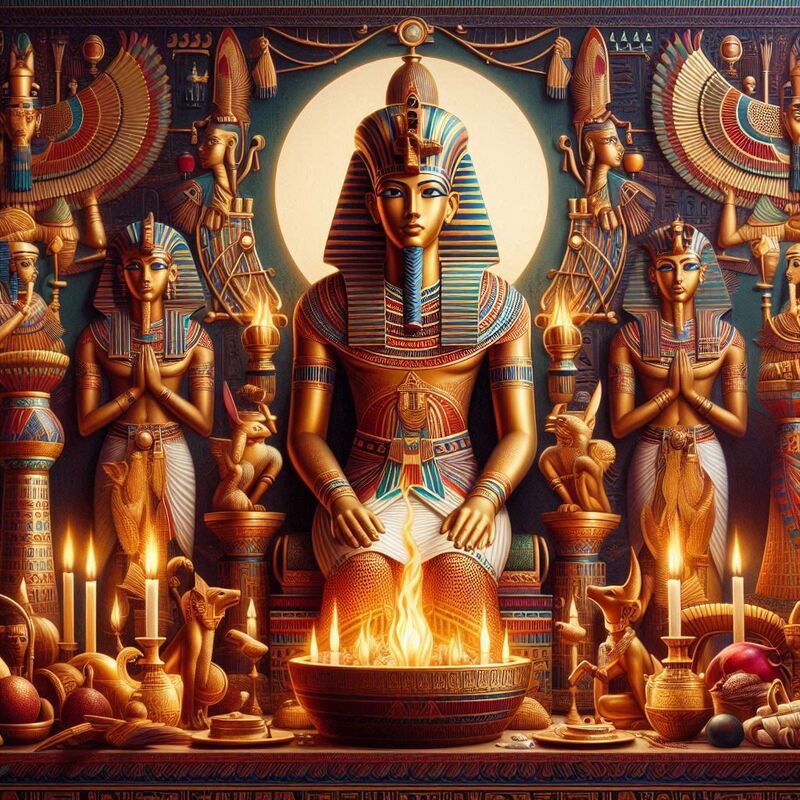
The Opet Festival, celebrating the rejuvenation of the god Amun and the pharaoh, involved grand processions and the offering of sacrifices. These rituals reinforced the divine authority of the pharaoh and the prosperity of Egypt. The concept of ma’at (cosmic order) was central to Egyptian beliefs, and sacrifices were seen as essential in maintaining this balance. Honoring the Gods
For the Egyptians, sacrifices were acts of devotion and gratitude, acknowledging the gods’ role in providing life and sustenance. These rituals strengthened the bond between the divine and the mortal, ensuring harmony and stability in the world.
The Positive Legacy of Sacrifices in Ancient Rituals
Honoring the Gods
While the specifics of sacrificial practices varied across cultures, the underlying themes of devotion, gratitude, and the maintenance of cosmic order were universal. Sacrifices were not simply acts of appeasement but were profound expressions of the relationship between humans and the divine.
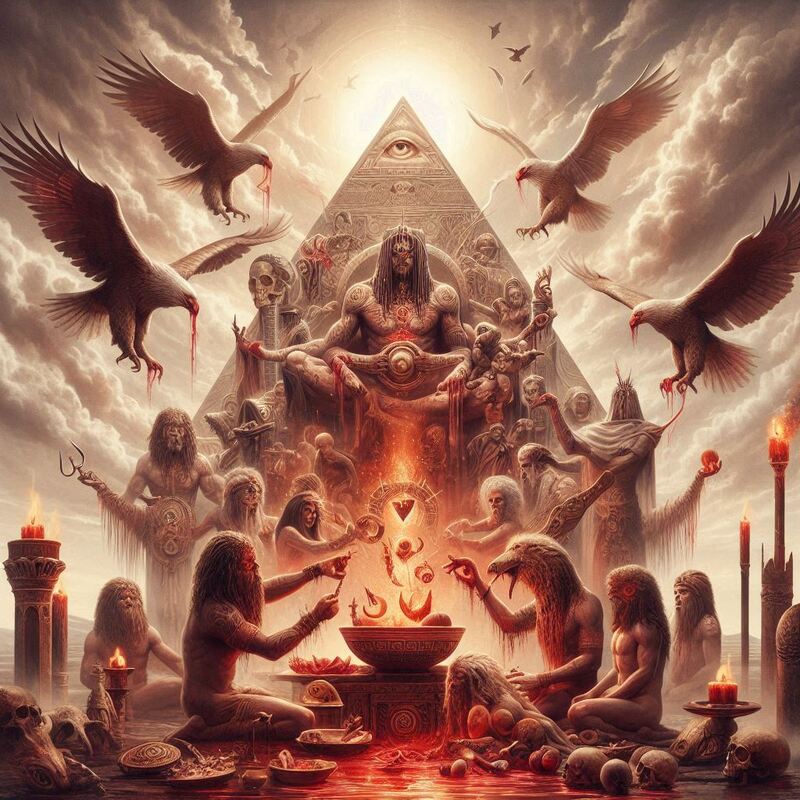
These ancient rituals fostered a sense of community, shared values, and collective responsibility. They reinforced the belief in a higher power guiding and sustaining life, encouraging humility, reverence, and a sense of interconnectedness.
In modern times, the legacy of these sacrificial rituals continues to influence religious practices, cultural traditions, and ethical frameworks. Festivals, offerings, and acts of charity often trace their origins to these ancient customs, reflecting the enduring significance of honoring the divine.
Conclusion
Sacrifices in ancient rituals were powerful acts of devotion and gratitude, integral to maintaining the relationship between humans and the divine. These practices, while varied in form and intent, shared a common purpose of ensuring cosmic harmony and communal well-being. Understanding the positive perspectives on these sacrifices allows us to appreciate their profound significance in shaping cultural and spiritual identities. As we honor the gods through modern expressions of devotion, we continue to draw inspiration from these ancient rituals, fostering a sense of connection and reverence for the divine.
